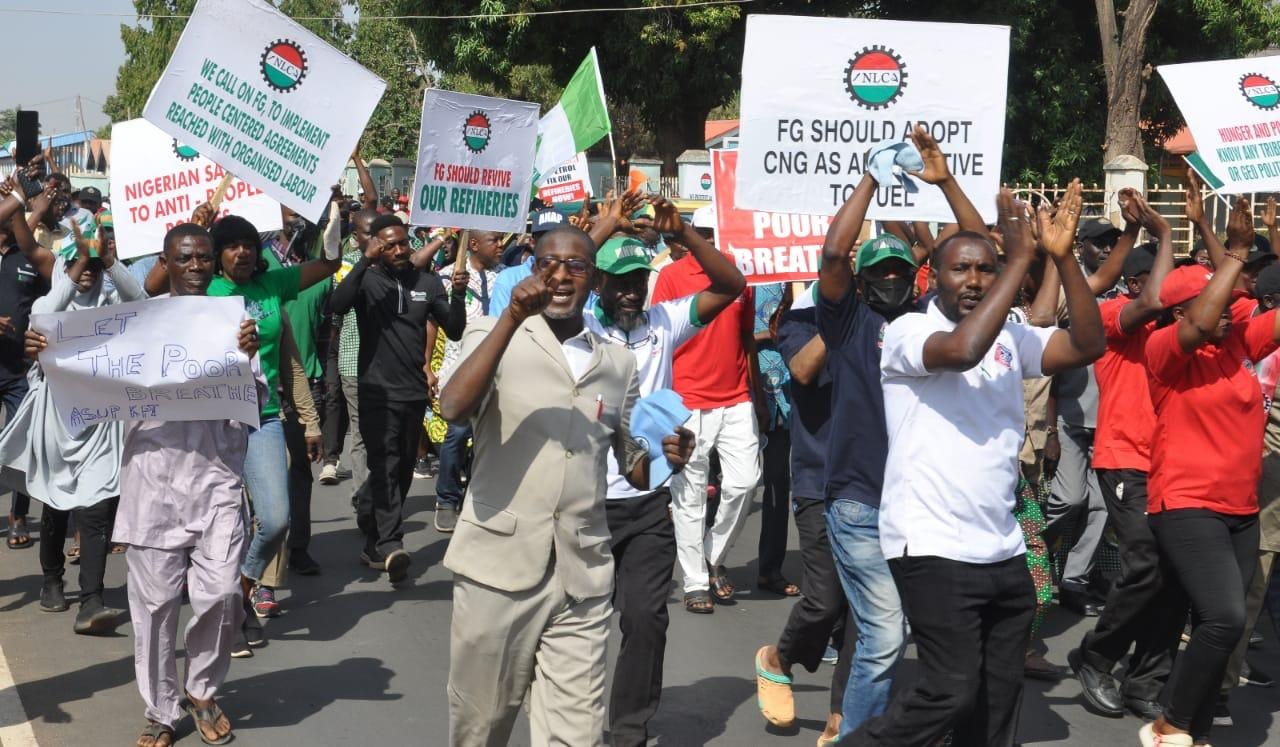5 June, 2024After calling for an indefinite strike over national minimum wages, and the reversal of electricity tariff increases, trade union federations, the Nigerian Labour Congress (NLC) and the Trade Union Congress (TUC), suspended the strike on 4 June to allow for negotiations with the Federal Government of Nigeria.
The unions announced they are entering into dialogue "to achieve favorable outcomes and safeguard the rights and welfare of all Nigerian citizens and workers."
The unions, who proposed 494 000 Naira ($332) as a national minimum wage, rejected the government’s minimum wage proposal of 60 000 Naira ($40) which they say is inadequate for workers to meet the ever-increasing cost of living. According to official reports, the Tripartite Committee on the national minimum wage is meeting to consider the union proposals.
Workers strated the strike on 3 June with most economic activities brought to a halt. Other union demands are on the reduction of the electricity tariff which they say worsens the workers’ financial difficulties.
“The indefinite nationwide strike action is therefore relaxed for one week from today to allow for a concrete and acceptable minimum wage,”
said Joe Ajaero, NLC president and general secretary of the National Union of Electricity Employees (NUEE), in a joint statement with the TUC.
Afolabi Olawale, general secretary of the Nigeria Union of Petroleum and Natural Gas Workers (NUPENG) added:
“We urge the Federal Government to utilise this grace period of one week to do all the needful for meaningful engagement and address the concerns of Nigerian workers to avoid further escalation of the crisis.”
both NUEE and NUPENG are affiliated to IndustriALL Global Union.
“The calls for a national minimum living wage by the union federations are important for Nigerian workers to meet their living expenses and be able to provide for their families. It is unacceptable to promote conditions that create the working poor – where wages fail to lift workers out of poverty,”
said Paule France Ndessomin, IndustriALL regional secretary for Sub Saharan Africa.
In February, unions protested the removal of petrol subsidies through demonstrations and pickets. They argued that the subsidy removal triggered food and transport costs increases and hiked inflation currently over 33 per cent according to the Central Bank of Nigeria. This is the highest level that inflation has reached since 1996, adversly affecting workers' wages. Additionally, the unions expressed concerns that the government’s austerity economic policies were anti-worker and exposing the poor and marginalised communities to poverty.


